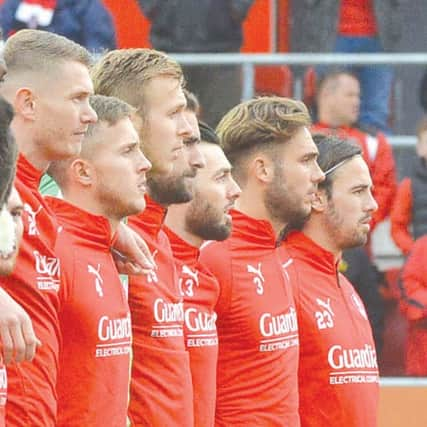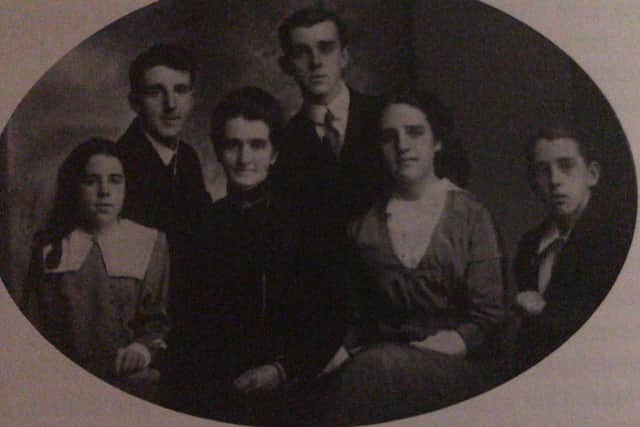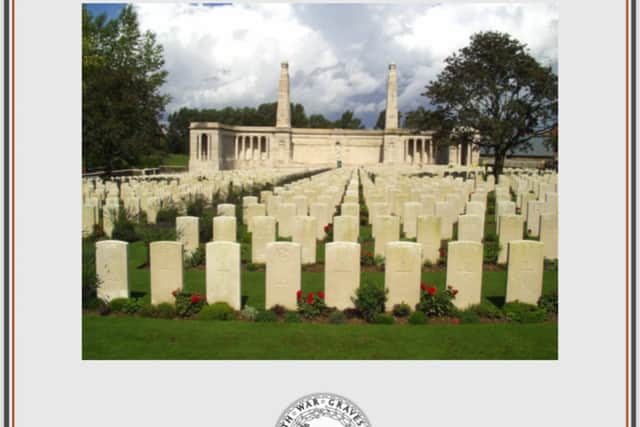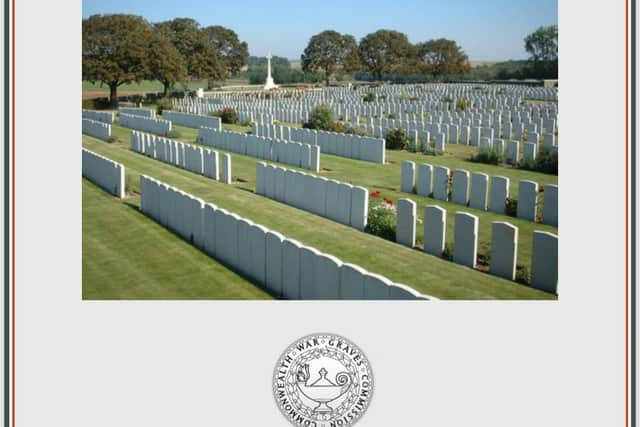The Will Vaulks Column: 'I picture it's me and my teammates ... why I remember the fallen, why I'm proud to be British'


They make me emotional. I try to put people's faces to the suffering in the two world wars.
The Rotherham United lads link arms and I picture it's all of us going to war. Like the old Pals Brigades, mates all joining up together. In my head, it's me and my teammates doing that.
Loads of footballers went to war. They weren't exempt.
Advertisement
Hide AdAdvertisement
Hide AdI have personal reasons for feeling like this. One of my ancestors on my dad's side of the family won a medal for bravery in the Second World War when he was fighting in France. Two brothers on my mum's side were killed in France during the First World War.
Most of us will have family members who fought in the wars. It's important we remember them and realise what they went through. I've been interested in it ever since I was young.


The brothers who were killed, Glynn and Hywel, are at the back of this photo. The one who didn't go to war, Robert, is bottom right
First of all, I'll tell you about my great-granddad, Sergeant Tom Vaulks, in the Second World War.
Advertisement
Hide AdAdvertisement
Hide AdOn September 4 1944 he led an attack on a railway station in Wavrin. He and his men came under heavy fire. They were in carriers but had to call on the back-up of tanks. There was fierce fighting and my great-granddad dislodged the enemy and more than 100 prisoners were taken.
He won a medal and the citation reads: “Throughout the whole action Sgt Vaulks showed great resourcefulness, courage and devotion to duty — a fine example to all in battle.”
When a direct relation is involved, it somehow brings home more the reality of what happened. You get a story out of that medal.
If he'd got out of his tank and been shot, I wouldn't be here. My granddad wouldn't, my dad wouldn't, I wouldn't.
Advertisement
Hide AdAdvertisement
Hide AdIt's the same on the other side of my family, the Edwards — the Welsh side, my mum's side. Two brothers, Glynn and Hywel, fought and died in World War One. When they signed up, a younger brother stayed at home because at the time he was too young to fight.
When his brothers were killed, he was spared military service on compassionate grounds. That younger brother is my great-granddad. If he had fought and died as well, again I wouldn't be here.
Glynn and Hywel are at the back of one of the pictures attached to this article. The younger one who didn't go to war is on the bottom right. I'm named after him. His name was Robert and that's my middle name.
I think a lot of people of my generation assume that all the people fighting had joined the Army, had wanted to be soldiers. Glynn and Hywel were Post Office workers in a quiet village in Wales. They'd probably never seen anything worse than a pheasant being shot. They weren't military men. They were taken out of normal life and ended up being killed.


Glynn died three weeks before Armistice Day.
Advertisement
Hide AdAdvertisement
Hide AdI'm patriotic. It's maybe not fashionable for a 25-year-old to say that, but I'm aware of the sacrifice my relatives and people like them made. They were tough, they were brave. I want to remember that, to embrace it. It makes me proud to be British.
Any war is terrible but they usually involve people who sign up and want to be soldiers. But in the world wars, people like me were called up and had to fight. Can you imagine telling young lads these days, you've got to get on a boat, get in a dirty trench and risk being blown up?
I find it amazing when I read that citation for my great-granddad, Tom. I picture it being me.
There is a guy up in Scotland called Alex Smith. He's retired now but he was technical director at Falkirk when I was there. He's a good friend of Sir Alex Ferguson.
Advertisement
Hide AdAdvertisement
Hide AdHe always used to say to me: 'If I was going to war, I'd take you in the trenches with me.' He was about 75. It was our running joke. I've always known about my great-granddad's medal but found out the full details only recently. When I did, I went and showed it all to Alex.
I realise how lucky I am to be here, to be playing professional football. Of course I do. We're all lucky. All young people around today are lucky because of the ultimate sacrifice so many others made for us.


Glynn and Hywel are buried in France. Glynn is in the memorial cemetery in Vis-en-Artois. Hywel is in the Rocquigny-Equancourt Road British Cemetery in Manancourt.
Their story particularly resonates with me.
Second Lieutenant Hywel Edwards was 24 when he was killed. Private Glynn Edwards was 23.
Both younger than I am now.
A version of this article first appeared in yesterday's Rotherham Advertiser